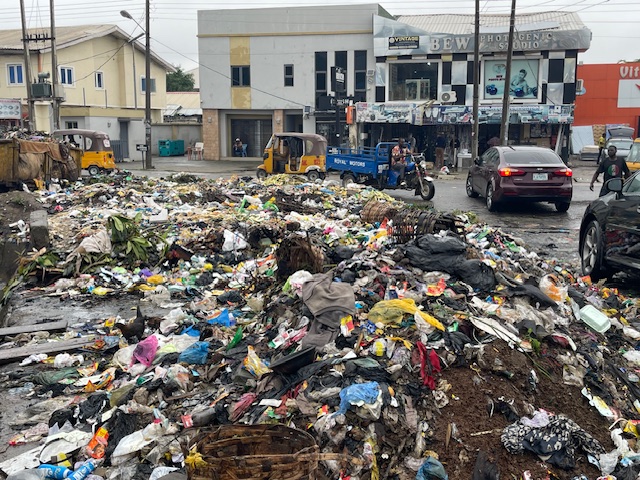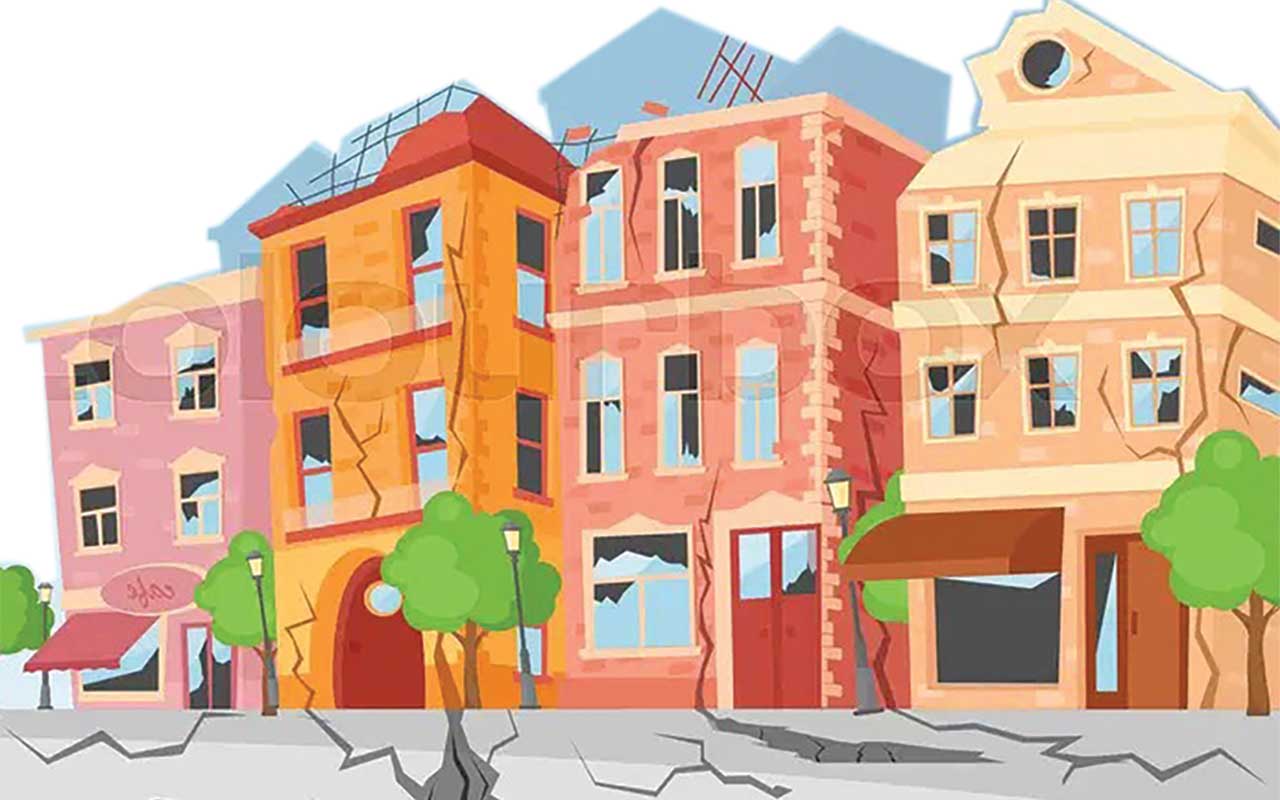 Efforts aimed at making poverty a relic on the African continent have been thwarted by the lack of access to reliable energy. It is in light of this that Mission 300, an initiative, which is aimed at providing electricity access to 300 million people in Sub-Saharan Africa, by 2030 is viewed as a game-changer that would transform Africa’s energy landscape if faithfully implemented, WALIAT MUSA reports.
Efforts aimed at making poverty a relic on the African continent have been thwarted by the lack of access to reliable energy. It is in light of this that Mission 300, an initiative, which is aimed at providing electricity access to 300 million people in Sub-Saharan Africa, by 2030 is viewed as a game-changer that would transform Africa’s energy landscape if faithfully implemented, WALIAT MUSA reports.
Without access to electricity, Africa cannot achieve its developmental aspirations or secure its rightful place in the global economy as energy access is the cornerstone of economic transformation, opening doors to education, healthcare, and income generation.
Across Africa, electrification efforts have been tepid, failing to keep pace with rapid population growth, especially in rural and remote areas where outdated energy infrastructure is struggling to meet current demand, let alone expand to underserved areas.
Without access to reliable power, economic opportunities remain constrained, with households and small businesses bearing the brunt of the challenge.
The reliance on alternative energy solutions, such as diesel power generating plants place significant strain on household budgets and stifle the growth of small enterprises due to high operational costs.
In rural areas, the lack of extensive power infrastructure is also forcing families to depend on kerosene lamps, which aside from being expensive expose them to serious health risks as a result of indoor air pollution.
According to Statista, the number of people without electricity in sub-Saharan Africa steadily increased from 2000 to 2013, reaching a peak of approximately 612 million.
However, between 2014 and 2019, several countries on the continent made some strides towards increasing access to electrical energy and improving overall conditions.
Statista reported a decline in electricity access in sub-Saharan Africa in 2021, with approximately 597 million people lacking electricity connections, compared to 581 million in 2020. This indicates that nearly five out of every 10 individuals in the region lived without access to power. The situation was even more severe in rural areas, where over 70 per cent of the population lacked electricity.
The World Bank’s 2024 report highlighted that Central and West Africa have some of the lowest electrification rates globally, with 220 million people in West Africa living without power, representing an electrification rate as low as 8 per cent in some areas.
Similarly, the International Energy Agency (IEA) reported that 600 million Africans lack access to electricity, out of a population of over 1.3 billion, accounting for approximately 83 per cent of the global energy deficit.
What makes this challenge particularly significant in Africa is that, for many years, the power sector has been plagued with challenges that are interconnected, including low access rates, poor maintenance, inadequate investment, non-cost-reflective tariffs, unsustainable subsidies, and financial instability.
Most public utilities in Africa are financially strained. They struggle to meet their operating expenses and are unable to fund necessary capital investments to sustain their operations, leaving them heavily dependent on government subsidies.
In response to the continent’s urgent energy crisis, the African Development Bank (AfDB), in partnership with the World Bank and other development partners, recently unveiled the Mission 300 initiative. This initiative aims to provide electricity access to 300 million people in Sub-Saharan Africa by 2030.
The collaborators emphasised that Mission 300 is more than just a numerical goal as it symbolises lives transformed, economies rejuvenated, and communities empowered.
Furthermore, the initiative is aimed at accelerating electrification by combining grid expansions with decentralised renewable energy solutions like mini-grids and stand-alone solar home systems. These solutions are especially useful in reaching vulnerable and remote regions where traditional grid infrastructure is not feasible.
Alongside these efforts, there are investments in generation, transmission, regional interconnection, and sector reform that are made to guarantee that the power supply is reliable, affordable, and sustainable.
Mission 300’s approach combines traditional grid expansion with innovative off-grid solutions to connect remote communities. The programme also focuses on sustainable financing models, and tackles critical challenges, including currency mismatches in project funding.
Importantly, private sector involvement is essential in tackling Africa’s energy challenges, especially given the continent’s rapidly growing population and the urgent need for increased investment.
Stakeholders, therefore, emphasise that the success of Mission 300 hinges on the collective efforts of governments, private sector players, and international partners, adding that governments must take the lead by implementing essential reforms to enhance sector efficiency and strengthen utilities.
They stressed that transparent, competitive processes for generating new capacity, along with cost-recovery frameworks for utilities, are vital as regulators would need to adapt quickly and innovatively to keep pace with the rapidly evolving technological and business landscape.
Governments and development partners, the stakeholders noted, should advocate for regional electricity trade to move away from the single-buyer model and facilitate the sustainable integration of Variable Renewable Energy (VRE) into fragile grids, thereby supporting energy transition in African nations.
With the private sector already playing a crucial role in expanding renewable energy access, particularly by implementing decentralised energy solutions, this approach is highly commendable, because of its effectiveness in areas where traditional utility-scale projects struggle due to infrastructure limitations.
Meanwhile, multilateral development banks and philanthropic organisations must increase their efforts to unlock private capital for the energy sector.
This, experts note, can be achieved through targeted financing instruments, risk mitigation tools, technical support, and policy advocacy.
In addition to all these, regulatory authorities in many African countries face political interference, which undermines their decision-making processes and hinders their ability to implement policies that are crucial for the long-term development of the energy sector.
In emphasising the transformative role of electricity in fostering development, the President of AfDB, Akinwumi Adesina said: “No economy can grow, industrialise or be competitive in the dark. Access to electricity is not just about power, it’s about creating jobs, improving healthcare, and fostering education. Mission 300 represents a bold step towards lighting up and powering Africa.”
On his part, the Vice President for Power, Energy, Climate, and Green Growth at the AfDB Group, Kevin Kariuki, stated that Mission 300 goes beyond being an energy initiative to even “a moral obligation. It embodies a shared commitment to lifting millions out of poverty, promoting inclusive economic growth, and building a resilient, green future.
He further emphasised that the success of the initiative depends on strong support from all stakeholders, including governments, development partners, the private sector, and civil society.
Kariuki, therefore called for a unified focus on prioritising reforms, mobilising investments, and leveraging partnerships to transform Africa’s energy landscape.
“Energy access is the cornerstone of economic transformation, unlocking opportunities for education, healthcare, gender equality, and income generation. It is a prerequisite for creating a green and resilient future, one where poverty is a relic of the past.
“The road ahead may be challenging, but it is also filled with opportunity. With determination, innovation, and collaboration, we can achieve universal energy access in Africa. This is our moment to make history,” he said.
The Special Adviser to President Bola Ahmed Tinubu on Media and Public Communication, Sunday Dare, highlighted Nigeria’s advancements in the energy sector during the Mission 300 Africa Energy Summit in Dar-es-Salaam, Tanzania. He noted that Tinubu has accelerated key initiatives to enhance energy access nationwide.
He emphasised Nigeria’s dedication to renewable energy, highlighting ongoing efforts in solar and clean energy under President Tinubu’s administration. Dare noted that the President is set to unveil a compact initiative aimed at advancing this agenda.
Dare highlighted that existing partnerships are yielding results, citing the AfDB’s commitment of N75 billion to Nigeria’s Rural Electrification Agency (REA) to enhance renewable energy development.
He expressed confidence in Nigeria’s capacity to meet its energy commitments, emphasising the key pillars of President Tinubu’s energy policy: sustainability, affordability, and accessibility, which align with the broader objectives of the summit.
“Africa coming together to pool its resources, whether it’s hydro, solar, wind, or the emerging green hydrogen is commendable. With our enormous gas deposits and tropical sunlight, we have what it takes to power the continent, Tinubu is a president who can make a pitch for his country, win deals, and secure solid commitments for foreign direct investments. Look at what happened in Brazil and what’s happening in agriculture. He’s bringing that same determination to energy,” he said.
Daniel Schroth, the Director for Renewable Energy and Energy Efficiency at AfDB, highlighted the urgent need for implementation to tackle Africa’s energy crisis.
“It’s a tight journey because 2030 is only five years away and we have to deliver, not expected connections, but actual connections to 300 million by 2030,” he said.
Also, AfDB’s Director of Energy financial solutions, policy, and regulation, Wale Shonibare, emphasised that investments in generation, transmission, regional interconnection, and sector reform must complement efforts to ensure that the power supply is reliable, affordable, and sustainable.
“The recently launched Technical Facility Accelerator Fund is a promising step in this direction, providing technical assistance to governments and helping streamline processes to achieve Mission 300 targets. By working together, we can transform the energy landscape of Africa and, in doing so, create a brighter, more prosperous future for millions,” he said.
The World Bank Group President, Ajay Banga emphasised that the partnerships forged and commitments made will shape the continent’s journey toward achieving universal energy access, transforming millions of lives, and driving sustainable development.






